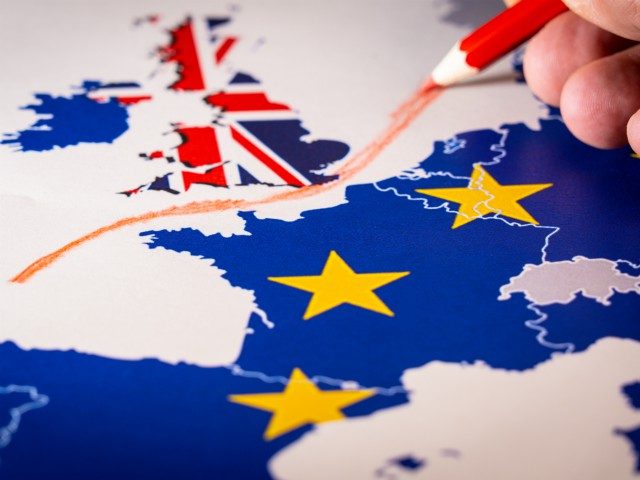The European Union will not reciprocate the United Kingdom’s pledge to treat goods crossing the British-EU border with a light touch customs check, saying it will impose full controls “to protect the Single Market”.
Speaking during a Chatham House webinar on Thursday, the EU’s Ambassador to the United Kingdom, Joao Vale de Almeida, said: “You can count on us to be forcible and systematic in implementing the deal, and in doing so certainly protecting the Single Market.”
Britain officially left the EU on January 31st, 2020, but remains in the bloc’s Customs Union, Single Market, and associated Free Movement migration regime during a “transition period” which ends on December 31st, 2020. During this time, both parties are working on agreeing a future trading arrangement.
The British government has maintained that it will leave all of the EU’s institutions, while the hardline EU has called for Britain to keep EU rules and continue to surrender her national fishing grounds to European trawlers.
Last week, the British government had confirmed that it would gradually impose customs checks on EU goods in phases for six months, with full controls not coming into effect until July 2021. The measures are meant to make the transition easier for British businesses.
Even if the United Kingdom agrees on a trade deal with the EU, once outside of the Single Market the UK would still need some customs checks: goods crossing the border will need customs declarations, and animal products will need health certificates, for example.
Explicitly asked if the EU will reciprocate Britain’s gradualist approach, Mr de Almedia said, according to Bloomberg: “We took note of the British decision, but we are not at the point in time where we either need or wish to take decisions on our side.”
Brexit Party leader Nigel Farage warned that failing to impose full border controls after the end of the transition period on December 31st, 2020, could mark the “first betrayal” of Brexit after Cabinet minister Michael Gove had pledged to treat all foreign goods equally from January 1st, 2021.
The EU’s prioritising the Single Market before good relations with the United Kingdom, which had a trade deficit of £72 billion with the bloc last year, is symbolic of what President Donald Trump has referred to as Brussels’ protectionism. Speaking at Davos in January, President Trump had said in January that the EU was “more difficult to do business with than China”.
Brussels’ harsh treatment of the United Kingdom is also broadly in line with remarks Eurocrats made in previous years, where they said they would make it as hard as possible for the British to leave the EU to deter other member-states from exiting the protectionist bloc.
Former European Parliament president Antonio Tajani said in 2019 that it was “impossible” that other members would leave, because “the example of the British will serve as a deterrent.”
Top Member of European Parliament (MEP) Guy Verhofstadt said in 2018 that members would be put off seeking independence after watching the “chaos” of Brexit. While former President of the European Commission Jean-Claude Juncker said in 2017: “They will all see from the UK’s example that leaving the EU is a bad idea.”
The EU’s punishing tactics may be working, however, with Swedish populists the Sweden Democrats backing down on an EU membership referendum pledge in their party manifesto after seeing how the bloc treated Brexit Britain. Party leader Jimmie Åkesson said last year that “clearly the EU does its utmost to complicate Britain’s departure”.
Reports circulated this week that Germany has told the EU to prepare for ‘No Deal’, because the United Kingdom will not surrender on fishing or regulations, and because there are only six months left during which to strike a deal.
A senior French official has also said that No Deal is a possibility, with junior European affairs minister Amelie de Montchalin saying on Thursday: “I am not ruling out anything.”
The European Parliament, which can veto any deal agreed by Brussels and London, also said that “without a level playing-field and fisheries, there cannot be a trade agreement”.
The British government said last week that no matter the outcome of negotiations, the United Kingdom will not seek an extension to the transition period and will leave the EU’s institutions at the end of this year.
Prime Minister Boris Johnson has reportedly told EU leaders that he is prepared to trade with the bloc on World Trade Organization (WTO) terms if a deal is not agreed by the autumn.

COMMENTS
Please let us know if you're having issues with commenting.